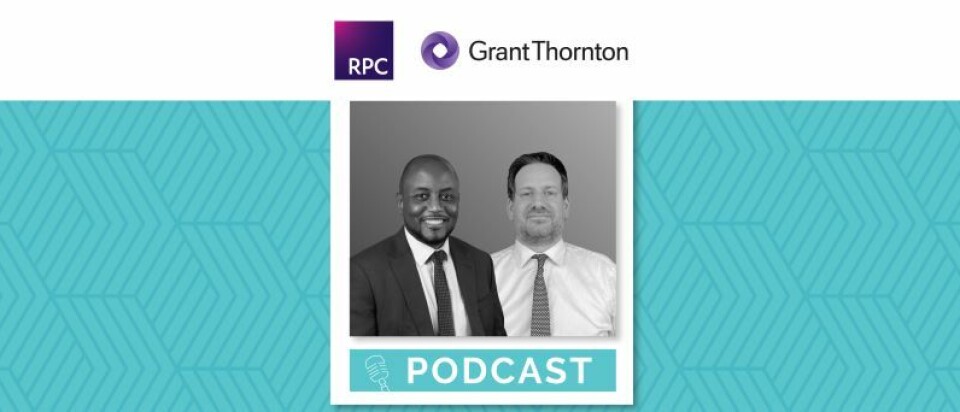Copyright : Re-publication of this article is authorised only in the following circumstances; the writer and Africa Legal are both recognised as the author and the website address www.africa-legal.com and original article link are back linked. Re-publication without both must be preauthorised by contacting editor@africa-legal.com
Following the money trail

In this podcast, seasoned asset recovery professionals Alan Williams and Amaechi Nsofor discuss how the illicit flow of funds and assets can be recovered and restored to Africa.
The United Nations Economic Commission for Africa estimated that last year a whopping $84 billion was lost through the illicit flow of funds from Africa. To put this figure into context, that's reportedly more than all of the money Africa receives each year in development aid.
“If you could tackle this problem, Africa wouldn't need any development aid at all,” said Alan Williams, an experienced commercial litigator at RPC, specialising in banking and finance disputes, often with cross-border implications, and encompassing a wide array of commercial disputes across various sectors.
Williams points out that at the centre of this challenging and complex problem are the unscrupulous politicians, officials and business people who pay bribes and involve the banks, along with lawyers and accountants who facilitate the transactions, sometimes unwittingly, but also sometimes knowingly.
“It's not just a problem in Africa. You've got a sophisticated and opaque financial system that is enabling these funds to move out of Africa and then remain hidden,” he noted.
Amaechi Nsofor, an expert restructuring and insolvency practitioner at Grant Thornton UK, says their key area of focus, and where they’ve seen the most activity around grand corruption and the illicit flow of funds, was with governments.
Nsofor calls it sovereign-level stealing from the public purse and hiding those assets outside the countries from which they have been stolen. He notes that while previously, illicit funds would be moved to well known tax haven destinations or countries which had secrecy laws, they are now being channelled to countries within Africa.
But it's not all doom and gloom, say the experts; key strategies can help recover stolen funds.
“You follow the money and you deploy insolvency tools to secure those assets cross-border and take control of the assets and deal with creditor claims, which will end up with you returning the funds to the ultimate creditors who have lost out,” Nsofor explains.
Williams adds that English courts have some of the strongest legal powers globally to take action to preserve assets, such as worldwide freezing orders that prevent parties from diminishing or disposing of their assets.
He says collaborating and working with local legal practitioners and professionals in Africa as well as education and awareness around the processes is crucial in the recovery process.
The insightful conversation wraps up with Nsofor and Williams sharing their views on what needs to be done to overcome corruption.
Nsofor, citing the Credit Suisse scandal and the impact on ordinary Mozambicans, said governments should use their crime fighting agencies to run parallel investigations to those initiated by the UK, and fine local financial institutions found guilty of wrongdoing.
“Fundamental to solving this problem is not just taking action in Africa, but it's also raising the bar in London and in other financial centres, and I think that is beginning to happen,” added Williams.
Click here to listen to the full podcast on Soundcloud, Spotify and Amazon Music.
Access additional audio platforms here.
To join Africa Legal's mailing list please click here
